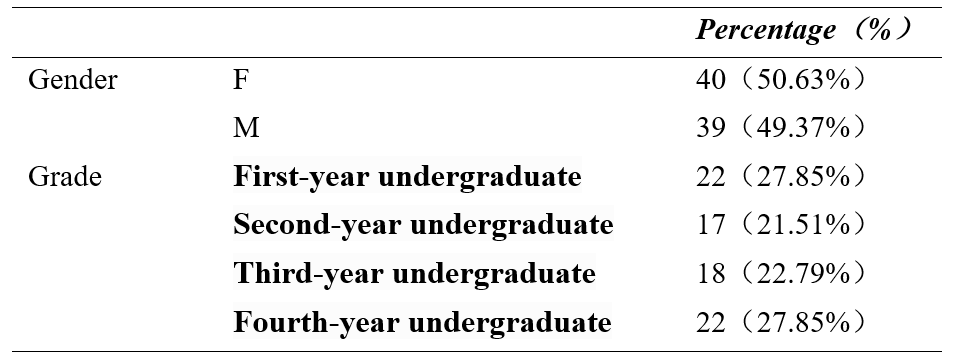The Relationship Between Academic Buoyancy and Academic Self-Handicapping in Foreign Language Learning Among University Students
Abstract
Academic buoyancy refers to students’ ability to successfully overcome routine academic challenges and setbacks, representing a positive adaptive psychological mechanism. In contrast, academic self-handicapping describes students’ tendency to proactively create barriers in evaluative situations to avoid potential negative judgments resulting from failure. This study employs questionnaire data to examine the relationship between academic buoyancy and academic self-handicapping in college students’ foreign language learning, with a focus on gender differences in both constructs and their intercorrelation.
Downloads
References
[2] Berglas, S., & Jones, E. E. (1978). Drug choice as a self-handicapping strategy in response to noncontingent success. Journal of Personality & Social Psychology, 36(4), 405–417. https://doi.org/10.1037/0022-3514.36.4.405
[3] Covington, M. V. (1992). Making the grade: A self-worth perspective on motivation and school reform. Cambridge University Press.
[4] Datu, J., & Yuen, M. (2018). Predictors and consequences of academic buoyancy: A review of literature with implications for educational psychological research and practice. Contemporary School Psychology, 22(3), 207–212. https://doi.org/10.1007/s40688-018-0185-y
[5] Martin, A. J., & Marsh, H. W. (2008). Academic buoyancy: Towards an understanding of students’ everyday academic resilience. Journal of School Psychology, 46(1), 53–83. https://doi.org/10.1016/j.jsp.2007.01.002
[6] Huang, S. (2006). Characteristics and correlates of academic self-handicapping in middle school students [Master’s thesis, Southwest University].
[7] Li, X. D., Lin, C. D., Nie, Y. Y., & Pang, A. L. (2003). Classroom goal structures, personal goal orientations, self-efficacy, and values in relation to academic self-handicapping. Psychological Science, 26(4), 590–594.
[8] Shi, W., & Huang, X. T. (2004). Self-handicapping: Research paradigms and influencing factors. Advances in Psychological Science, 12(1), 72–78.
[9] Sun, W. W. (2009). The effects of daily academic buoyancy and academic engagement on academic achievement in high school students [Master’s thesis, Northeast Normal University].
[10] Zhao, F. Q., & Yu, G. L. (2018). Daily academic resilience: A positive adaptation mechanism under routine academic stress. Advances in Psychological Science, 26(6), 1054–1062.


This work is licensed under a Creative Commons Attribution 4.0 International License.
Copyright for this article is retained by the author(s), with first publication rights granted to the journal.
This is an open-access article distributed under the terms and conditions of the Creative Commons Attribution license (http://creativecommons.org/licenses/by/4.0/).









1.png)









1.png)











